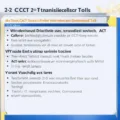Understanding Wisdom
Wisdom is commonly defined as the quality of having experience, knowledge, and good judgment. It comes from living life, observing others, learning lessons, and gaining deeper understanding. Wisdom is often associated with qualities like empathy, compassion, patience, and tolerance.
At its heart, wisdom is about seeing the bigger picture, recognizing what matters most, and making choices to nurture wellbeing – our own and others’. It’s a mindset as much as knowledge. One can be knowledgeable without being wise, but it’s difficult to be wise without being knowledgeable.
Why Wisdom Matters
Cultivating wisdom allows us to live healthier, more purposeful lives and make a positive difference. Wise people are able to assess situations clearly, control knee-jerk reactions, consider context and nuance, and respond thoughtfully. This leads to better outcomes.
As society faces complex issues from climate change to inequality, we need wisdom to navigate challenges, find solutions, and lift each other up.
Developing Wisdom
Wisdom accumulates gradually through life experiences. However, consciously working to deepen wisdom can guide and accelerate growth. Here are tips:
Keep learning: Read widely, seek new perspectives, ask questions. New knowledge builds mental capacity.
Reflect often: Look back on experiences with curiosity to extract meaning. What lessons or insights arise?
Practice empathy: Seek to truly understand others’ situations and feel compassion. This broadens perspectives.
Control reactions: Pause before reacting to challenging people/events. Consider context and respond thoughtfully.
Prioritize connection: Spend time with wise mentors and friends discussing meaningful topics. Their wisdom seeds more wisdom.
Cultivating Wisdom Together
While wisdom may seem like an individual pursuit, we can nurture it collectively too. Here are some ideas:
- Start book groups exploring philosophical and spiritual traditions from around the world.
- Organize community wisdom councils where elders share life lessons and guide younger generations.
- Practice nonviolent communication. Find shared needs and humane solutions during conflicts.
- Establish mentoring programs connecting children to elders.
By valuing wisdom across generations and cultures, we seed more compassionate communities.
Frequently Asked Questions
What are characteristics of a wise person?
Wise people often demonstrate open-mindedness, compassion, emotional intelligence, self-awareness, discernment in decision making, willingness to learn from others, and concern for the greater good. They balance multiple perspectives before offering counsel.
What are 5 daily habits that build wisdom over time?
Five daily wisdom-building habits include:
- Reading philosophical, spiritual, or historical texts
- Writing reflectively about lessons learned from experiences
- Meditating to cultivate presence and self-awareness
- Discussing meaningful topics with people from different backgrounds and generations
- Pausing before reacting to frustrations and considering context and constructive responses
Why do some intelligent people lack wisdom?
Wisdom depends on more than intelligence or knowledge. Some highly intelligent people prioritize ego over ethics, lack self-awareness, cannot empathize with different perspectives, or fail to consider long-term consequences of actions. This impedes wisdom. Wisdom also requires humility to recognize the limits of one’s knowledge.
Are wisdom and spirituality connected?
Spiritual traditions are rich resources for cultivating wisdom because they grapple profoundly with existential questions, ethics, suffering, compassion, and our relationship to what is most meaningful. However, one can develop wisdom through secular philosophies and practices too. What matters most is deliberately nurturing those qualities of mind and spirit that help us live wisely.
Why do we need wisdom in today’s complex world?
Modern life bombards us with information, misinformation, noise, conflict, and rapid change. This turbulence can be disorienting. Wisdom provides ballast – filtering what matters, guiding priorities centered on wellbeing and social good, promoting consideration and collaboration despite differences, and avoiding knee-jerk reactions. By providing this compass, wisdom enables progress.









